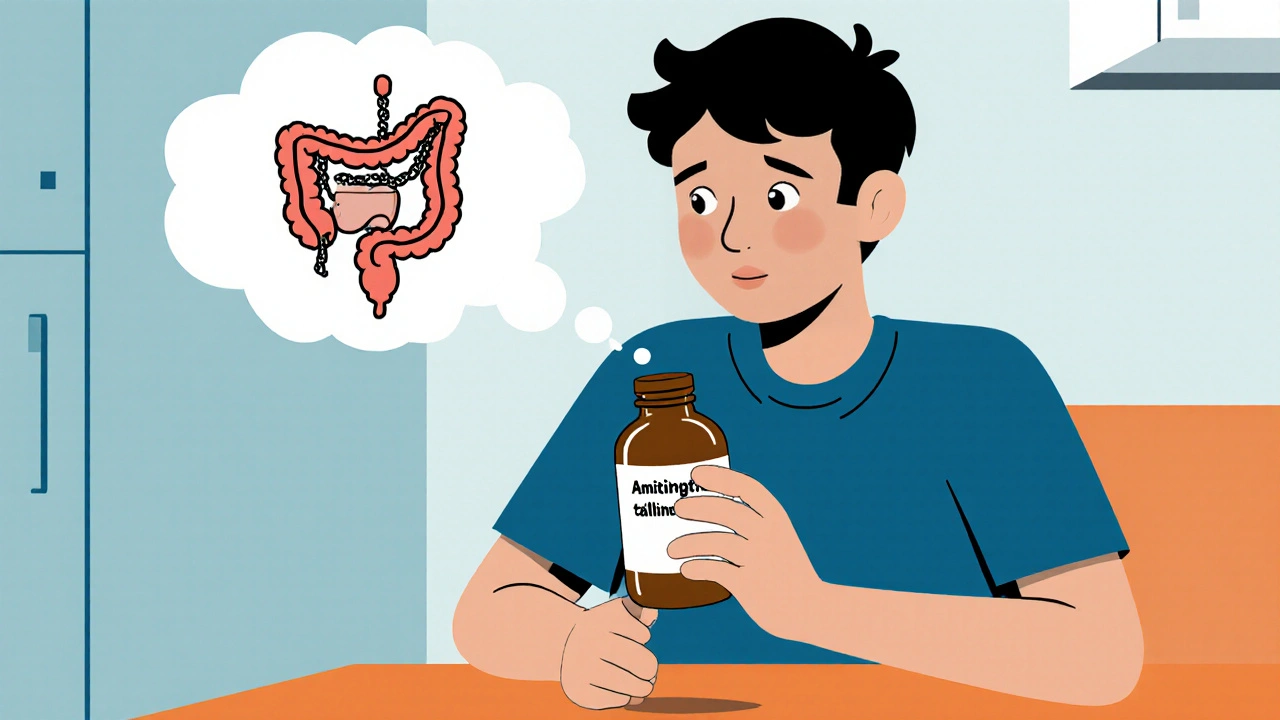Amitriptyline and Constipation: Causes, Risks, and How to Manage Them
Learn why amitriptyline often causes constipation, who’s at risk, and practical steps to prevent or treat it while staying on the medication.
Continue ReadingWhen you hear amitriptyline, a tricyclic antidepressant originally developed in the 1960s to treat depression but now widely used for chronic pain and sleep disorders. Also known as Elavil, it works by balancing serotonin and norepinephrine in the brain—two chemicals that affect mood, pain signals, and sleep cycles. Unlike newer antidepressants, amitriptyline doesn’t just lift your mood—it can quiet down the constant buzz of nerve pain, help you fall asleep faster, and even reduce migraines. But it’s not a simple pill. It has a long list of interactions, side effects, and risks that many patients aren’t warned about until it’s too late.
One of the biggest dangers? Mixing amitriptyline with other drugs that affect serotonin. That includes common over-the-counter cold medicines like dextromethorphan, certain migraine pills, and even some herbal supplements. This combo can trigger serotonin syndrome, a dangerous condition where your body produces too much serotonin, leading to rapid heart rate, high fever, confusion, and muscle rigidity. It’s rare, but it happens—and it’s often misdiagnosed as the flu or a stroke. You also need to be careful if you’re on MAOIs, a different class of antidepressants that can cause life-threatening spikes in blood pressure when mixed with amitriptyline. And if you’re taking heart meds like methadone or statins, amitriptyline can make side effects worse by slowing how your body clears them out.
People use amitriptyline for more than just depression. It’s one of the most prescribed drugs for nerve pain—especially from diabetic neuropathy, shingles, or fibromyalgia. It doesn’t cure the pain, but it dulls the signals so you can sleep, move, and function. Many patients find it works better than gabapentin or pregabalin, but the side effects are heavier: dry mouth, drowsiness, weight gain, blurred vision, and trouble urinating. If you’re over 65, your doctor should start you on a low dose. Your heart and liver need extra care with this drug.
What you won’t find in most doctor’s office brochures is how often amitriptyline gets prescribed off-label for insomnia, IBS, or even chronic headaches. And while it’s cheap and effective, it’s not for everyone. If you have glaucoma, an enlarged prostate, or a history of heart rhythm problems, you might need a different option. The good news? There are plenty of alternatives—and many patients switch successfully once they understand the risks.
Below, you’ll find real, practical guides from people who’ve been there: how to avoid dangerous drug combos, what to do if you miss a dose, how to safely stop without withdrawal, and which alternatives actually work. No fluff. Just what you need to stay safe and get relief.

Learn why amitriptyline often causes constipation, who’s at risk, and practical steps to prevent or treat it while staying on the medication.
Continue Reading